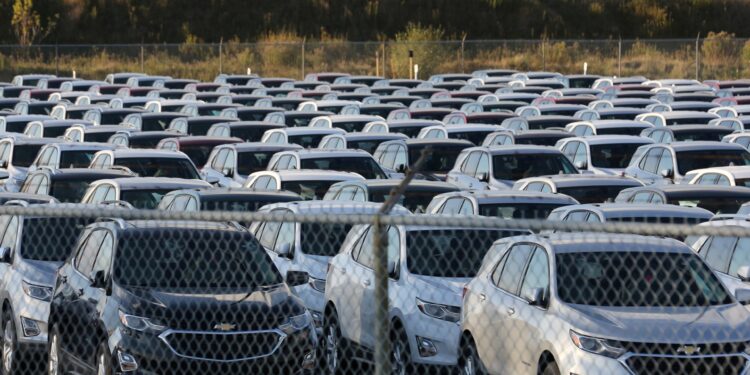Amid President-elect Donald Trump’s threats to impose tariffs on imports from Canada and Mexico, new analyzes have shown that the American auto industry may be the first victim of these trade policies.
According to Bloomberg, expectations indicate that the proposed customs taxes will cause “huge pain” to American auto companies that rely heavily on the supply chain across North America.
Significant imports from Canada and Mexico
According to the analysis conducted by economist Nicole Gorton-Caratelli of Bloomberg Economics, half of US imports of assembled cars come from Canada and Mexico.
As for spare parts, about 80% of vital components such as seat belts and airbags depend on suppliers in these two countries.
This interdependence – according to Bloomberg – threatens to undermine demand for American car components, as taxes will be imposed on assembled cars coming from Canada and Mexico, which harms the participation of American-made parts integrated into these cars.
“By threatening Canada and Mexico with tariffs, Trump is directly threatening the US auto industry,” Gorton-Caratelli points out.
Impact on local and international companies
Bloomberg believes that the irony here is that these fees may affect American companies that produce their cars in the United States more than their foreign competitors that rely on global supply chains.
Companies such as Volkswagen and Porsche, which are already struggling in the Chinese market, will face a double challenge if additional duties are imposed on their imports to the American market, according to Bloomberg.
In addition, other companies such as Mazda in Mexico expressed concern about the upcoming trends, and its regional director stated that the company will reconsider investment strategies if tariff threats continue without clarity.
Possible repercussions
Along with the United States, global companies have already begun preparing to face a new trade war.
According to Bloomberg reports, some Chinese factories have shifted production to Vietnam or European markets to avoid US tariffs.
On the other hand, these threats pose an additional concern amid the slowdown in global industrial production and increasing Chinese competition in key sectors.
As these developments continue, the US auto sector faces a turbulent future under Trump’s trade policies.



